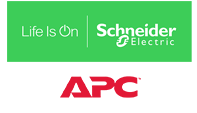



Solution providers whose customers fail to measure their Scope 3 emission should be aware that their competitors are working to use it to their advantage.

Solution providers whose customers fail to measure their Scope 3 emission should be aware that their competitors are working to use it to their advantage.
According to a survey of business executives from Boston Consulting Group, 53 percent of companies questioned said they are measuring their Scope 3 emissions. That marks a huge jump from the 34 percent that said the same thing in 2021.
“(C)ompanies have taken steps to significantly improve the coverage of their emissions measurement and reporting,” Boston Consulting Group said in its report.
Scope 3 emissions are indirect greenhouse gas emissions that occur in a company's value chain, beyond its direct operations. These include emissions related to both upstream activities like raw material extraction and downstream activities, such as the use of sold products.
“(M)ore respondents said they have set Scope 3 reduction targets—up 12 (percentage points) since 2021, from 23 percent to 35 percent—with the most common areas of focus being waste management and purchased goods and services,” the report explained.
For solution providers to get a good handle on this for customers, a good place to start is Schneider Electric’s product lineup.
Schneider Electric's approach to addressing Scope 3 emissions, which include indirect emissions in a company's value chain, is multifaceted and comprehensive.
For example, the company provides Zeigo Activate. This is part of Schneider Electric's Zeigo platform, which assists organizations in managing and reducing Scope 3 emissions. It provides comprehensive renewable energy procurement solutions, including data-driven insights and analytics. This enables businesses to understand better and manage their renewable energy portfolios, thereby addressing Scope 3 emissions through informed energy procurement decisions.
Other offerings from Schneider Electric include its Sustainability School, which offers a range of training and online courses tailored to the specific needs of IT solution providers. The curriculum covers various aspects of sustainable IT, including energy efficiency, circular economy principles, renewable energy integration, and responsible supply chain management. Participants gain insights into the latest trends and best practices in sustainability, enabling them to develop innovative solutions that reduce environmental impact and drive cost savings.
These products, and a strategy of reducing Scope 3 emissions, have benefits beyond environmental, Boston Consulting Group concludes:
“Businesses that have made decarbonization progress are capturing these wide-ranging benefits and gaining a competitive edge over their peers. To catch up, laggards will need to accelerate their emissions reduction in the near term, even as their measurement and reporting are still maturing.”